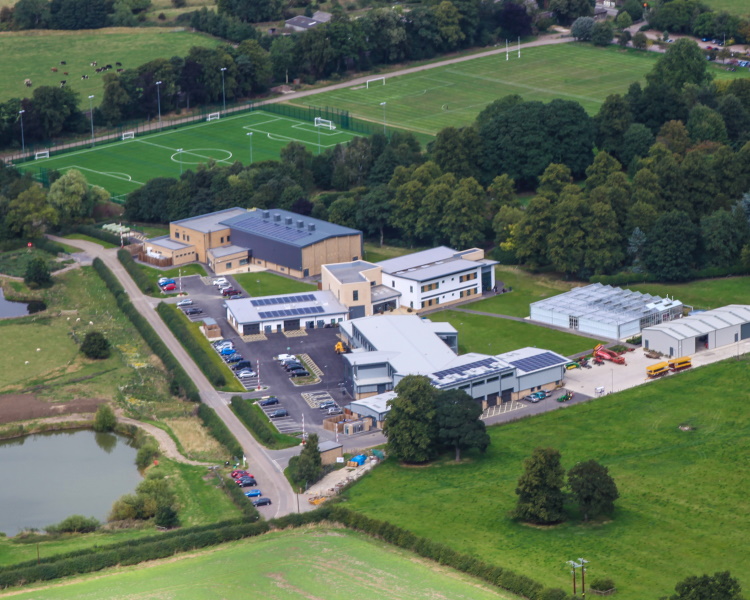What Is Safeguarding?
Safeguarding means protecting young people and vulnerable adults from abuse and neglect, promoting their health and development, ensuring their safety and optimising their life chances. It also includes measures to prevent people being drawn into terrorism or extremism, and supporting those who might be susceptible to radicalisation (Prevent Strategy).
Safeguarding At College
The safety, health and wellbeing of students is of paramount importance to us. The college has a legal and moral duty to ensure all students are safe and protected whilst engaged in college-related activities, and therefore expects all staff to respect this duty. In exercising its safeguarding duty, the college will:
-
- Raise awareness of safeguarding and threats to the wellbeing of students.
- Provide a safe environment for young people and vulnerable adults to learn in.
- Ensure students are safe in their personal lives and in the community.
- Ensure the suitability of staff and volunteers through safe recruitment practices.
- Identify and support students who are suffering, or likely to suffer from, harm or abuse.
- Take action to protect and support students suffering harm or abuse.
- Work with external partners to support the safeguarding of students.
Full details of our approach to safeguarding are set out in our Safeguarding Policy and our Prevent Strategy, which are viewable in our Documents and Policies section (please note: this link will take you to the Loughborough College Group Policies webpage, as we are now a merged entity).
Staying Safe Online
The college recognises that online technology often provides the platform for facilitating harm or abuse. It will therefore take steps to protect students against such abuse, including the utilisation of filtering systems to prevent individuals from accessing inappropriate websites and monitoring systems to ensure compliance. The college has policies on both the safe use of online technologies and dealing with incidents of online abuse.
Reporting Allegations Or Suspicions Of Abuse
If a student or staff member has any safeguarding concerns, these should be reported immediately to a member of the College Safeguarding Team, who will investigate and take action on the concern, either internally or in liaison with local safeguarding partners.
Lead Designated Safe Guarding Officers
Heather Clarke - Deputy Principal for Curriculum and Quality and Designated Safeguarding Lead (DSL)
Jacob Humphries - Safeguarding and Welfare Manager
Additional Designated Safe Guarding Officers:
Stephenson:
Allison Boyd - Student and Apprenticeship Services Manager
Bess Gerard - Welfare and Wellbeing Officer
Paul Dancer - Director of Commercial Curriculum - Stephenson
Carolyn Haines - Director of Campus - Stephenson
Naomi Stretton - Student Development Coach
Rebecca Preston – Senior EPA and Business Support Co-ordinator
Amy Clare - Support and Inclusion Supervisor
Brooksby & Melton
Andy Graham - Director of Curriculum – Brooksby
Katie Bosworth - Safeguarding and Welfare Officer
Sammy Atkins - Welfare and Safeguarding Officer (Hives)
Kerry Costello - Student Services, Welfare and Admissions Team Leader
Sarah Bosworth - Residential Manager
Jo Kell - Senior Residential Duty Warden
Nicole Runfola - Support and Inclusion Supervisor
Michelle White - Access Arrangements Assessor and Learning Development Lecturer
The team can be contacted during normal opening hours: 9.00am – 5.00pm (Monday – Thursday), 9.00am – 4.30pm (Friday)
If the alleged victim is considered to be in immediate danger and in need of protection, or if the alleged perpetrator poses a threat to others, a referral should be made to the local social care service and, where appropriate, the police. This should be done immediately. Where a crime has taken place, the police must be contacted (999 emergency, 101 non-emergency).
Out Of College Hours Support
A person wishing to report a safeguarding concern outside of college hours should contact their Local Authority Out of Hours Social Care Service, which can be found athttps://www.gov.uk/report-child-abuse-to-local-council by entering the relevant postcode.
The Leicestershire and Rutland Safeguarding Children Partnership website provides important safeguarding information for the public, children, young people, parents, carers, school staff and other professionals. In addition, you can anonymously contact the NSPCC via text on 88858 for free, and they will send an automated confirmation response followed by a specific response from a Helpline Practitioner within three hours.
Out of hours emergency Mental Health Support can be found by calling NHS 111 or following their website: https://111.nhs.uk/ or via the NHS Central Access Point (CAP) on 0808 800 3302 or via their website: https://www.leicspart.nhs.uk/service/central-access-point/
Additoinal Resources for Out of Hours support:
|
Emergency Help and Support |
For urgent help, if someone is in danger or an active crime is being committed call 999. If you are aware that someone has committed a crime or been a victim of a crime, please call 101. |
|
Mental Health and Wellbeing |
Emergency Mental Health Services can be accessed by calling 111 and selecting Option 2. There are a range of support services available through the NHS which can be found here. The Samaritans are available to help with anything that’s troubling you, no matter how large or small the issue feels. Call for free on 116 123 or email |
|
Abuse and Radicalisation |
If you're worried that you or someone you know, is being abused or radicalised, even if you're unsure, you can speak to NSPCC about your concerns. Call 0808 800 5000, report it online or email |
|
The local authority Children and Adult services can also help
|
In Leicestershire County: To report abuse or neglect of a person aged 18 or over, click here. To report abuse or neglect of a person under 18, click here. For anyone from a different Local Authority, please search “Children/Adults Social Care [Name of Local Authority] |
|
Other Support Options |
There are a range of further local support options should you require them: For help with food: For help with accommodation: The Bridge Housing Support and Advice in Loughborough and Leicester | The Bridge (East Midlands) For help with abuse: Living Without Abuse LWA | lwa.org.uk | Domestic abuse and sexual violence charity: LWA |


